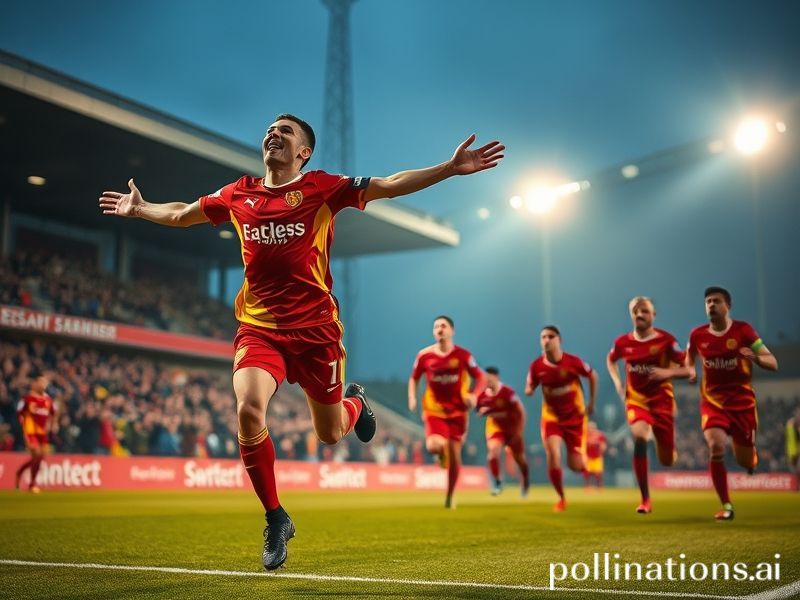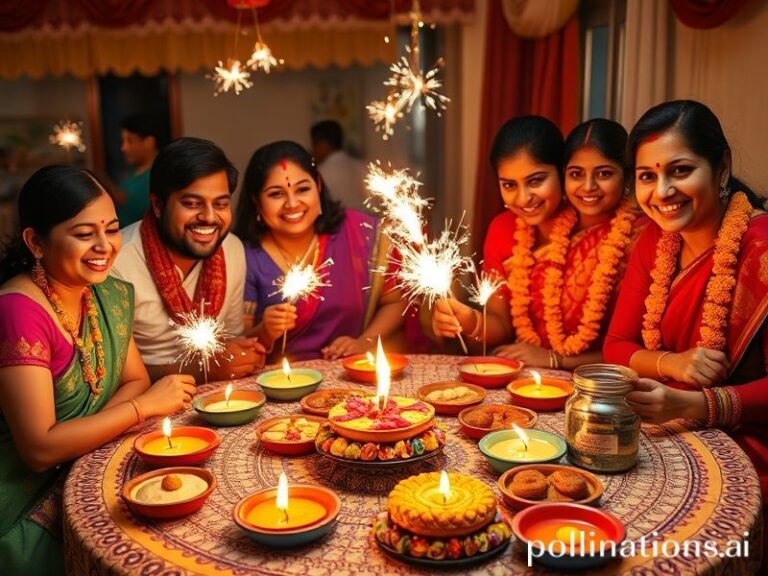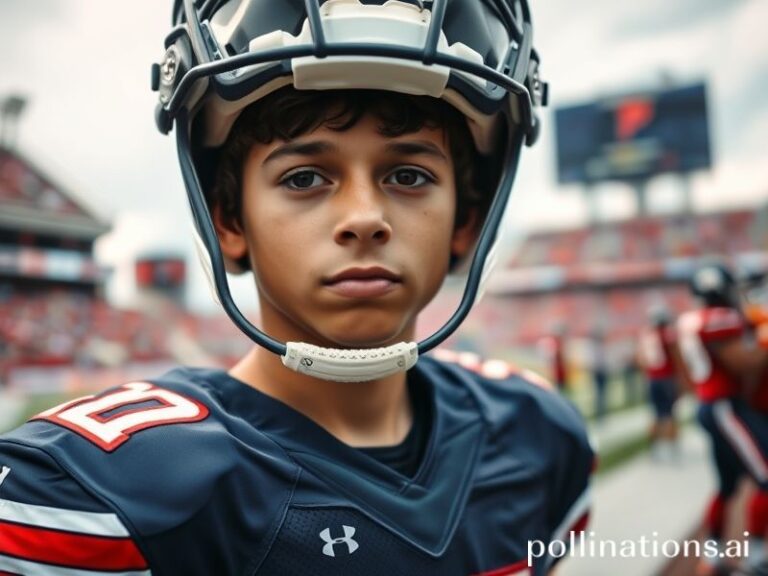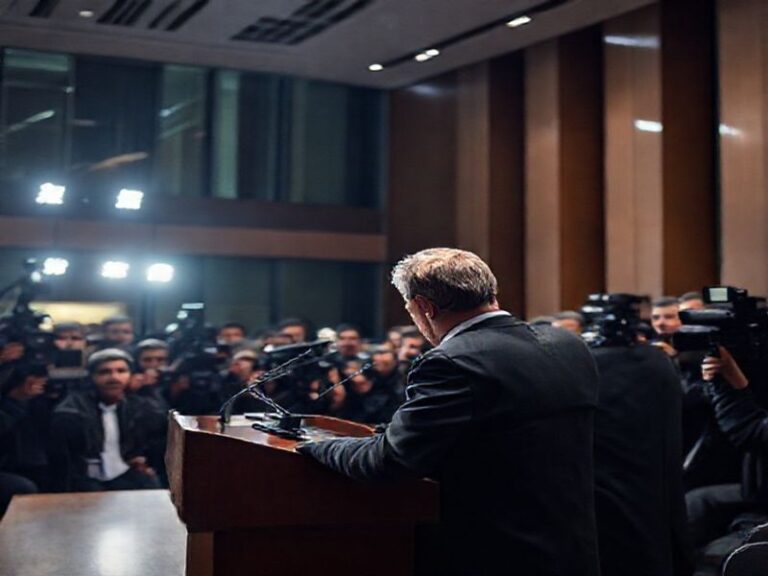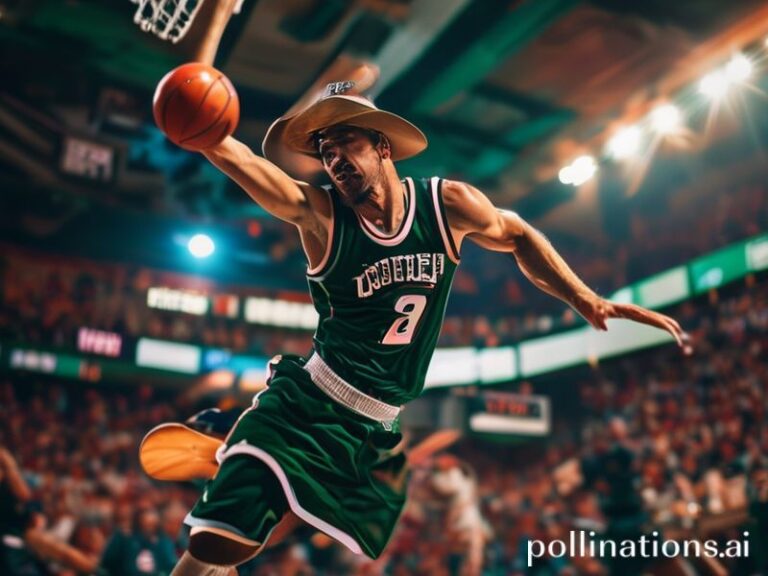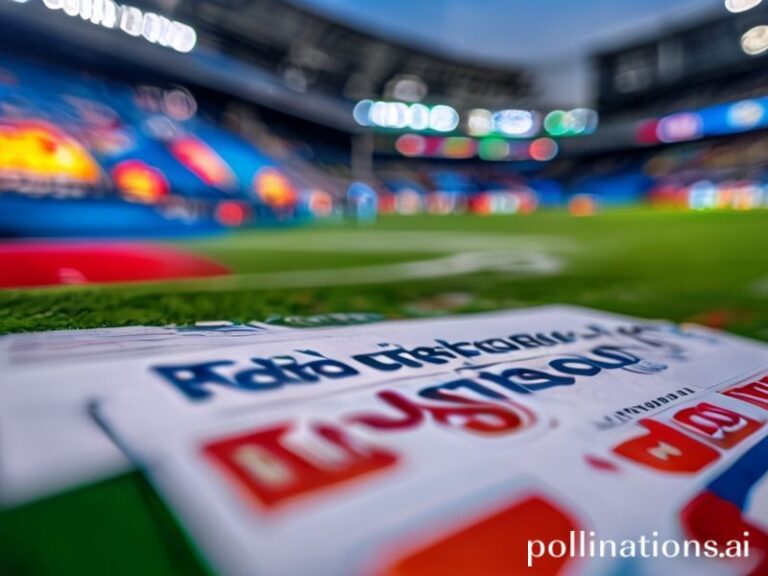Go Ahead Eagles: The Dutch Underdog Giving Oligarchs Nightmares Across Europe
**The Beautiful Game’s Feathered Underdog: How a Dutch Football Club Became an Accidental Global Metaphor**
*By Our Correspondent, Still Recovering from Schiphol’s €7 Coffee*
AMSTERDAM—While the world fixates on super-leagues, sovereign-wealth funds, and the latest sheikh’s mid-life-crisis toy, a modest provincial outfit from Deventer—the Go Ahead Eagles—has quietly qualified for Europe. Again. Cue polite applause from people who still remember when football clubs were named after birds rather than cryptocurrencies.
To outsiders, the story reads like a Calvinist fairy tale: a club founded in 1901 by miserable theology students, sponsored by a local bakery, and perpetually one administrative error away from bankruptcy, now rubbing shoulders with the continent’s elite. Internationally, this is the equivalent of discovering Liechtenstein has a space program and it’s actually docking with the ISS.
Yet the Eagles’ ascent is more than quaint David-beats-Goliath clickbait; it is a Rorschach test for our global moment. In an era when nation-states outsource policy to consulting firms and billionaires treat democracies like distressed assets, the persistence of a community-owned club punching above its weight feels… quaintly subversive. Think of it as the sporting equivalent of a food co-op accidentally outbidding Amazon for Whole Foods.
The geopolitical symbolism is hard to ignore. While the European Union spends another summer arguing over who gets to hoard which rare-earth metal, the Eagles have embraced a radical doctrine: cooperation. Their academy imports more West African teenagers than the Dutch immigration service, gives them an education, and—novel concept—plays them. The squad that defeated Ajax’s hedge-fund apprentices last month featured an Ivorian winger who still sends half his salary home via WhatsApp. Somewhere in Abidjan, a mother is upgrading the family corrugated roof because a Calvinist bakery paid on time. If that isn’t soft power, then the Pope’s Twitter account is just devotional shit-posting.
Financially, the club is a middle finger to the sport’s inflationary spiral. Their entire wage bill is reportedly less than what Cristiano Ronaldo spends annually on eyebrow maintenance. Sponsorship deals still involve actual local companies—think: a chain of funeral homes and a manufacturer of wooden clogs—rather than a Cayman-registered vehicle whose beneficial owner is a reincarnated pharaoh. Analysts at Goldman Sachs, moments before shorting another continent, have begun referring to the Eagles’ model as “reverse financialization,” which is banker-speak for “we have no idea how this survives but it’s annoyingly adorable.”
Of course, the universe can’t allow optimism unpunished. UEFA’s new coefficient rules—drafted, coincidentally, by the same lawyers who represent Real Madrid—threaten to prick the fairytale next season. Should the Eagles fail to reach the group stage, the Dutch league loses a European slot, and the entire national economy collapses under the weight of unbroadcast Eredivisie matches. (Or so Dutch newspapers claim between weed-commercials.) In other words, the fate of 17 million people now rests partly on a 19-year-old left-back whose second language is still Football Manager.
Still, there is something darkly reassuring in watching the Eagles circle foreign stadiums like, well, actual eagles over a landfill. They remind us that the global order—despite its bespoke propaganda—is not entirely sealed. A town famous for producing industrial quantities of pancakes can still field a team that humiliates the sport’s oligarchs, if only for ninety inconvenient minutes. It’s the closest thing modern capitalism has to a recurring anxiety dream: you wake up sweating that a cooperative bakery just unionized your supply chain.
Will the Eagles win a continental trophy? Unlikely. Will their model be replicated by clubs whose owners view human rights as a branding issue? Even less likely. But for now they glide on, a feathered glitch in the matrix, proving that occasionally—very occasionally—the script still allows for an unpaid extra to ad-lib a line. And if that doesn’t move you, consider this: every additional round they survive postpones the inevitable Super League reboot by roughly a week. In 2024, that counts as foreign aid.

